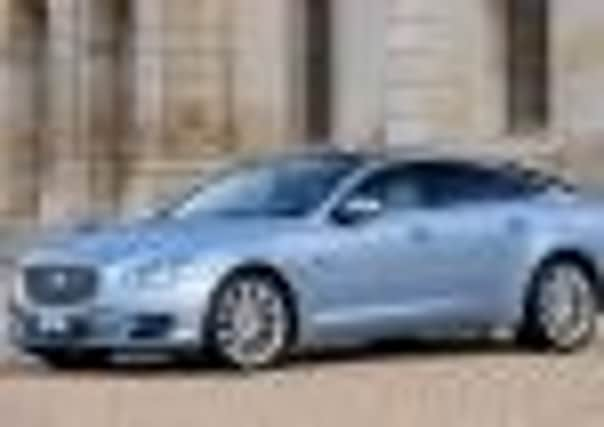Motorist left with £29k bill for ‘courtesy’ car


Alexander Greenlees was happy to take delivery of what he thought was a top-of-the-range courtesy car when his own beloved Jaguar Sovereign had been pranged by a bin lorry.
He did not think twice about signing for the gleaming new 2.7 Jaguar Sport Premium, but if he had read the paperwork, he would have seen it was a hire agreement, at a daily rate of some £350.
Advertisement
Hide AdAdvertisement
Hide AdIt was more than three months before the claim for his car was settled, and he discovered that the replacement was a hire and not a courtesy car.
Mr Greenlees, 48, a jeweller, of Graham Street, Glasgow, sued Allianz Insurance, the insurer of the other driver in his accident, for the cost of the hire, £36,075. However, a judge at the Court of Session in Edinburgh ruled he was entitled to only £7,488.
The court was told that Mr Greenlees took the view that he was not responsible for the bill, but the hire company, Accident Exchange Limited (AEL), said it intended to sue him for its money. Mr Greenlees had been keen on Jaguars since his teens, he said, and had owned six or seven. The latest, a 1999 Sovereign, which had just been fitted with a reconditioned engine, was parked in Hamilton, Lanarkshire, on 10 November 2008 when a bin lorry reversed into it. He estimated it was worth at most £6,000.
Mr Greenlees had fully comprehensive, like for like, insurance, and he contacted his broker, who arranged a transporter for the damaged car, and said someone would bring him a replacement. Later that day, in the dark, a man arrived with the 2.7 Jaguar Sport Premium, worth more than £40,000.
“He signed for it. He thought the document he was signing was simply an acknowledgement that he had received it and that there was no damage on it. He did not examine the agreement, but just signed it. While he thought it was a receipt for the vehicle, it is in fact a vehicle rental agreement,” said the judge, Lord Matthews.
Mr Greenlees said that if he had known the car had not been provided by his insurance company, he would never have taken it. He had never heard of AEL, and when he found out how much the car had been costing, he thought it was a joke. As far as he was concerned, he had no responsibility himself to pay the hire charges, and AEL had not asked him for it.
John Kyle, Glasgow branch manager of AEL, said its business was to provide a replacement vehicle for someone in a no-fault accident and to help manage the claim against the third party. He was asked if AEL would sue Mr Greenlees if his claim against Allianz failed, and he said “yes”.
Lord Matthews said: “There is no suggestion on either side that Mr Greenlees was not bound by the contract. It is enforceable and, in light of the evidence from Mr Kyle, I proceed on the basis that it will be enforced.”
Advertisement
Hide AdAdvertisement
Hide AdAllianz accepted liability for the accident, and ultimately paid £4,700 to Mr Greenlees. It disputed, however, that it should meet any of the hire charges.
Lord Matthews said he regarded it as reasonable that Mr Greenlees should have hired a car while his vehicle was off the road, although he had not appreciated what he was doing. Also, the car provided was like for like, in the categories of hire cars.
However, he decided that Mr Greenlees could not recover damages for the full period of the hire, 103 days. He said delays had occurred in settling the claim to Allianz, while Mr Greenlees insisted he had repeatedly sent a receipt for the reconditioned engine to AEL and AEL always maintained nothing had been received. The judge set the period at 43 days.
He also said it had been established in previous similar cases that the cost to be recovered was an average daily rate, which could be lower than the price charged. In this case, he assessed the figure at £174, bringing out a total of £7,488.